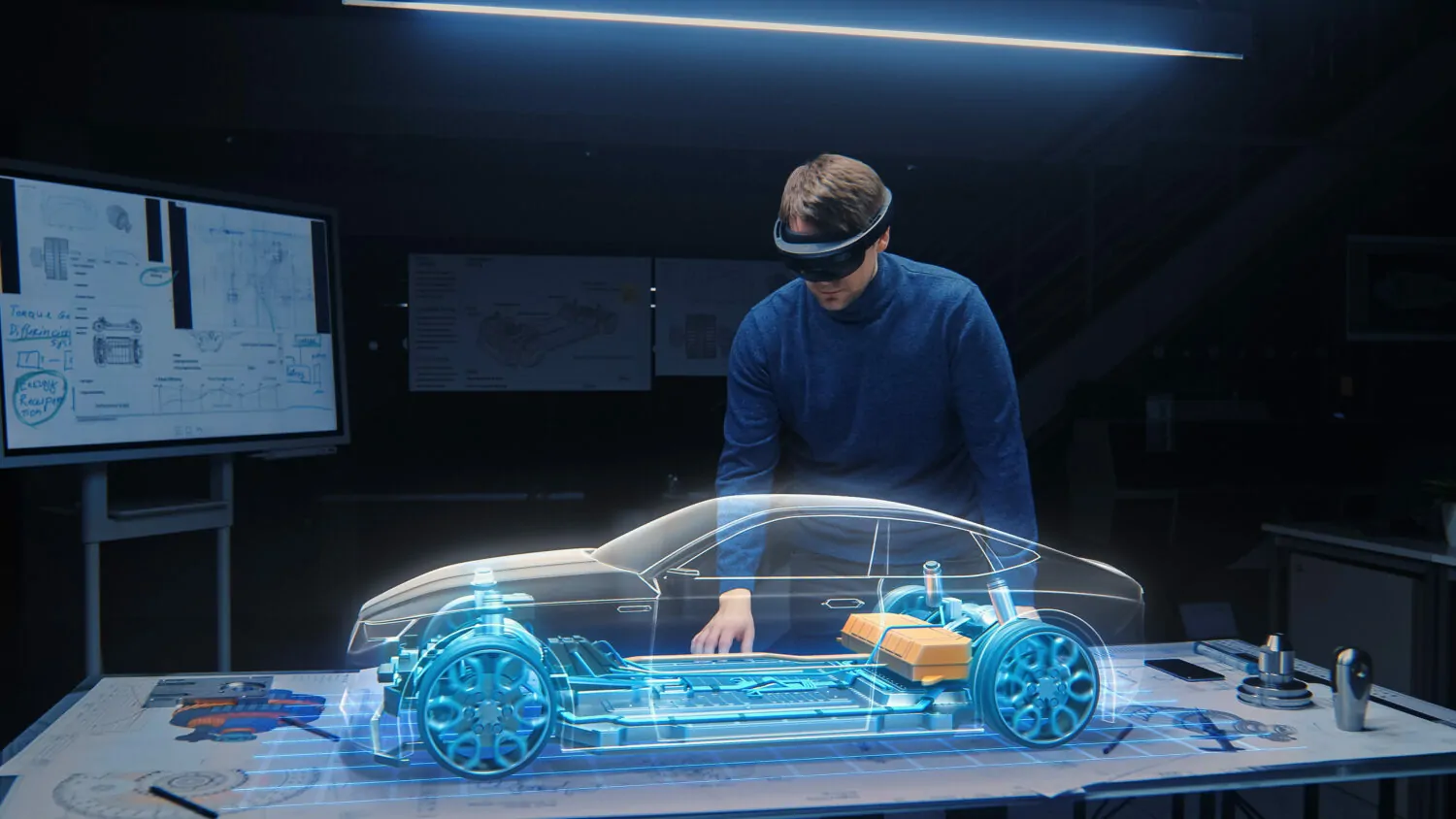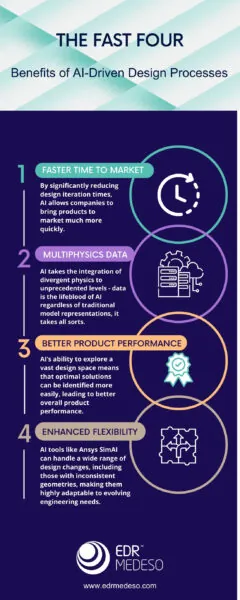The Fast Four: Benefits of AI-Driven Design Processes


AI technologies are dramatically altering the traditional workflows in engineering by enabling a shift from manual, time-consuming simulations to rapid, AI-driven predictions and optimizations.
Tools like Ansys SimAI are now providing platforms where AI can be trained to predict performance across design changes without the need for extensive reparameterization of geometries and other properties. This adaptability allows AI models to work seamlessly across any multiphysics, traditionally-complex, projects—coupled domains such as fluids, structures, thermal, electromagnetics, and more—regardless of the industry segment.
Ansys SimAI, for instance, allows for rapid performance predictions, significantly cutting down design iteration times and costs. It leverages previously generated simulation data to continuously refine its predictive models, thereby reducing the need for new simulations. This “physics-neutral” approach is versatile, making it applicable across physical domains and industries.
The era of engineering intelligence is here, where AI tools explore thousands of design variants in a fraction of the time. Traditional workflows might explore two designs per week, but with AI, companies can explore over a thousand designs in just a few days. This leap in speed is not just about reducing time to market but also about achieving better product performance and cost efficiency.
Neural Concept’s deep learning models, for example, allow for the exploration of thousands of design possibilities at unprecedented speeds. These models use advanced algorithms to quickly assess and optimize designs for performance metrics such as aerodynamics and material strength. The result is a 10,000x increase in design exploration capability, leading to more innovative and high-performing products.
Let’s look at some successful applications of AI in engineering to understand how these technologies are making a tangible difference.
Bumper Impact Performance
Designing a car bumper requires balancing lightweight materials for fuel efficiency with robustness for safety. Traditional crash tests are costly and time-consuming. By using AI-driven virtual optimization, approximately 50 different crash models were evaluated to develop a surrogate AI model. This AI model accurately predicts bumper deformation with an error of less than 0.5% while barrier forces error is within 10%. The AI approach allows for a 20x increase in design assessment and a 50x faster optimization process than classical methods.
External Aerodynamics
Aerodynamic performance is critical for vehicle energy efficiency, directly impacting regulatory compliance and cost. AI models trained on different car designs can predict the pressure field and drag coefficients with remarkable accuracy. For example, in SUV aerodynamic performance analysis, AI models reduced prediction times from 5 hours using traditional methods to less than a minute, maintaining an error margin of less than 0.5%. This speed and accuracy enable manufacturers to stay competitive while meeting strict emissions regulations.
Enhanced Check Valve Designs
Designing check valves with optimal performance is a complex task due to the many degrees of freedom involved. Neural Concept’s deep learning modules enable innovative, non-parametric designs that maximize key performance indicators like mass flow rate and force on the piston. The AI models reduce the time required for CFD validation and achieve over 10% improvement in mass flow rate while maintaining prediction errors below 1%.
The integration of AI in engineering is not just a technological advancement but a critical shift toward more sustainable, efficient, and innovative design processes. As AI continues to evolve, its ability to disrupt the status quo will only grow, offering even greater opportunities for optimization and innovation across various industries. Tools like Ansys SimAI and Neural Concept’s deep learning modules are at the forefront of this transformation, proving that AI is not just a promise for the future but a powerful tool for the here and now in today’s engineering challenges.
By embracing these AI technologies, companies can achieve new levels of performance, efficiency, and sustainability, ultimately contributing to a smarter and more sustainable tomorrow.
